Interview: David Dean Bottrell of DAVID DEAN BOTTRELL MAKES LOVE: A ONE MAN SHOW at The Triad
"Just don't lie."
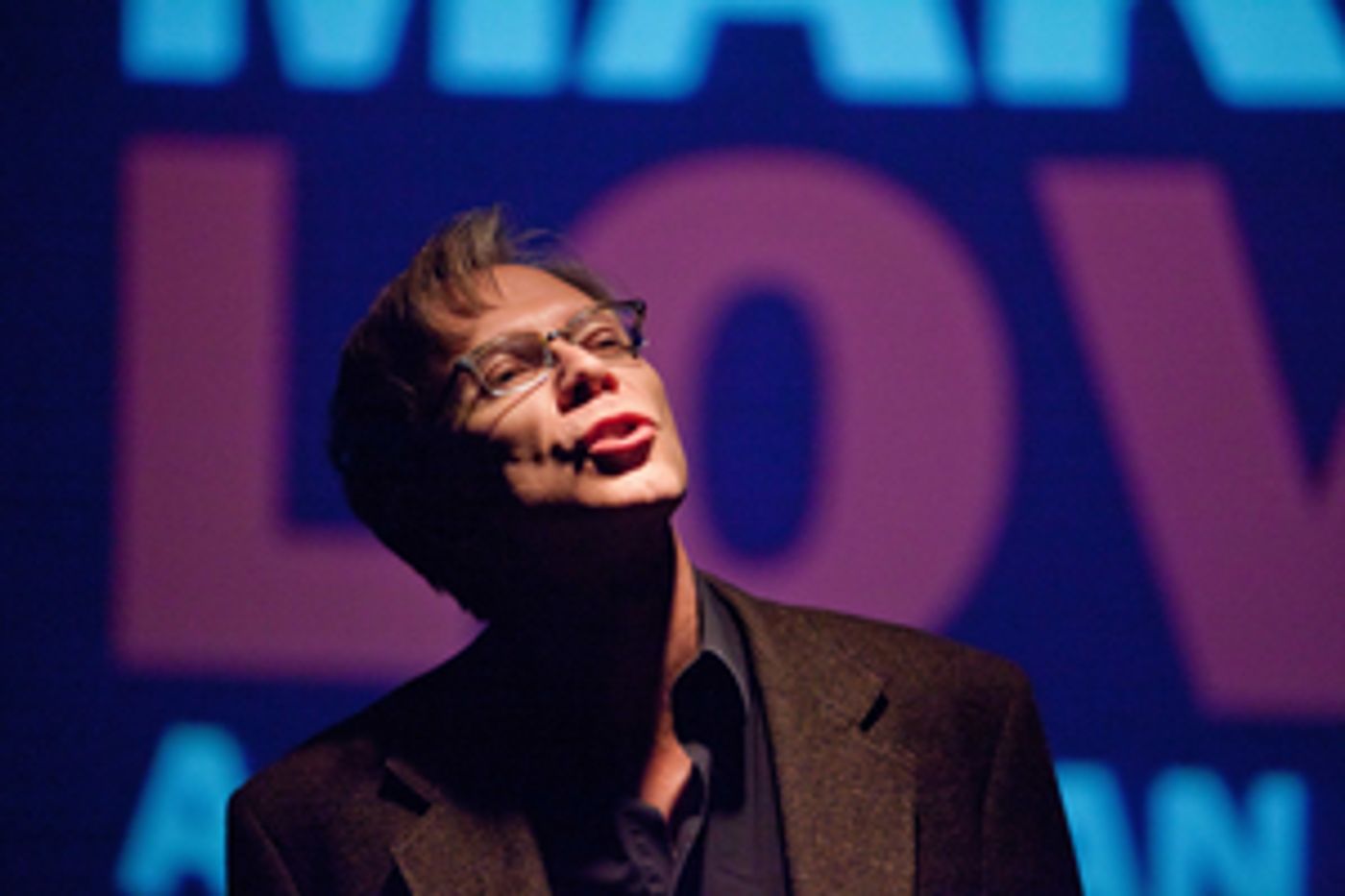 David Dean Bottrell is having a special springtime, here in New York City. The Hollywood character actor, screenwriter, and instructor in the craft of acting is currently in Manhattan to celebrate the ten year anniversary of the creation of his popular and praised one-man storytelling show David Dean Bottrell MAKES LOVE: A ONE-MAN SHOW. In his highly personal and completely true evening of storytelling, Mr. Bottrell discusses with his audience some aspects of his life that many people would be reluctant to make into a conversation with even their closest friends... but it's working for him. Audiences and critics alike can't get enough of Bottrell or his stories, as fans of the television actor and fans of storytelling flock to The Triad to catch one of his weekly performances.
David Dean Bottrell is having a special springtime, here in New York City. The Hollywood character actor, screenwriter, and instructor in the craft of acting is currently in Manhattan to celebrate the ten year anniversary of the creation of his popular and praised one-man storytelling show David Dean Bottrell MAKES LOVE: A ONE-MAN SHOW. In his highly personal and completely true evening of storytelling, Mr. Bottrell discusses with his audience some aspects of his life that many people would be reluctant to make into a conversation with even their closest friends... but it's working for him. Audiences and critics alike can't get enough of Bottrell or his stories, as fans of the television actor and fans of storytelling flock to The Triad to catch one of his weekly performances.
As David Dean hits the middle mark in the run of his anniversary production, Broadway World Cabaret reached out to ask the bi-coastal show business proficient about the play, about the many hats he wears in the business, and about his most famous character, a rather odd man from the TV show BOSTON LEGAL.
This interview was conducted digitally and is reproduced with minor edits.
David Dean Bottrell, welcome to Broadway World!
Thank you, Stephen! I love BroadwayWord. I'm very happy to be talking with you.
Do you prefer David, David Dean, DDB, or some other moniker?
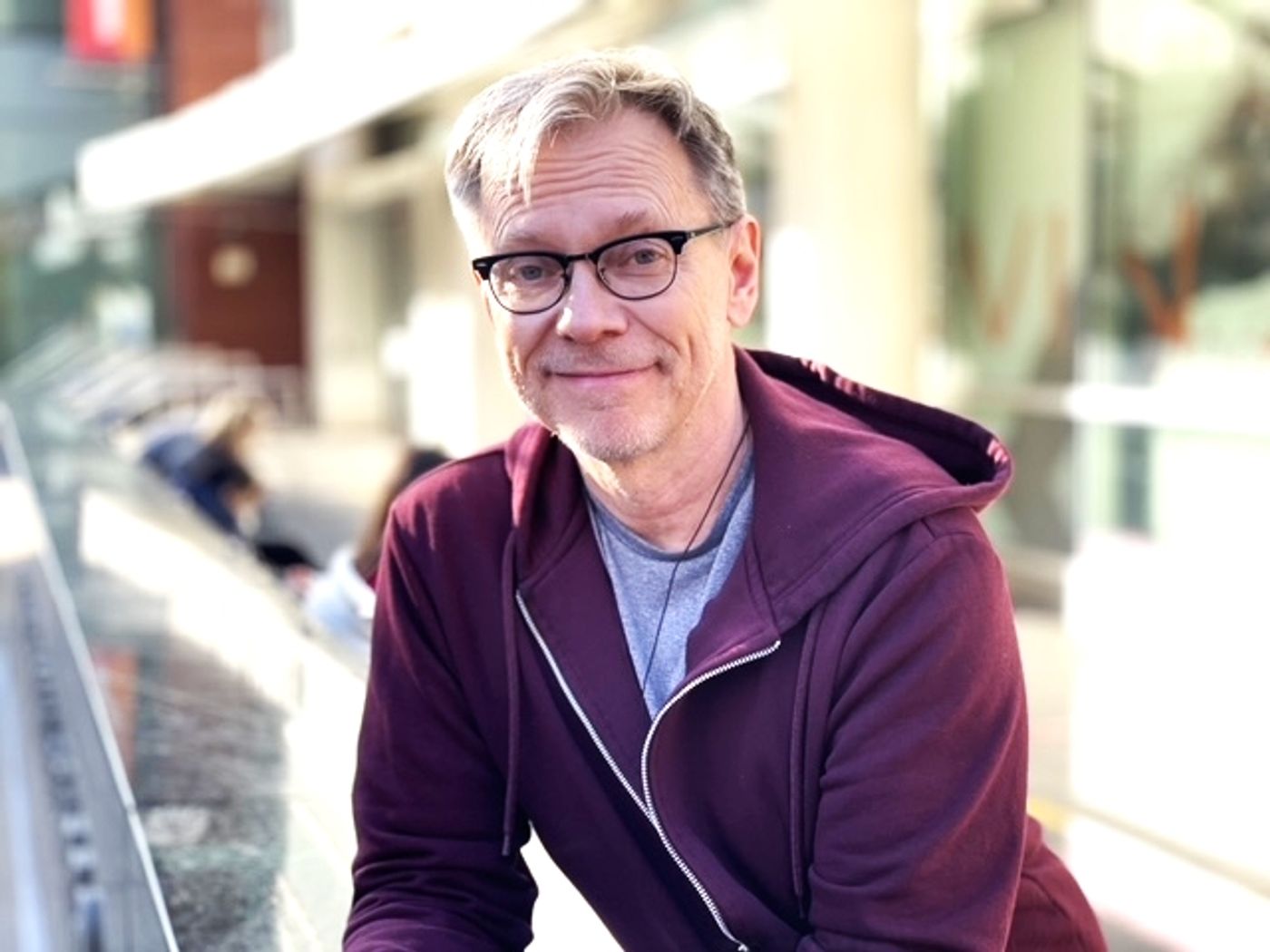
Thank you for asking that. I prefer "David." I was never a big fan of "Dave." And for reasons I've never understood, a lot of people tend to call me "Dean" which was my father's name. Fun fact: I started my career with only two names. I first started using all three when I was working as a screenwriter in Hollywood. As soon as I noticed how tiny the screenwriting credits were on movie posters, I decided to take up as much space as possible! I now like using all three of my names professionally. I think, used together, they make me sound like a Tennessee Williams character - which is pretty close to the truth of who I am!
You have been playing The Triad Theater to great houses and notices with your one-man storytelling show David Dean Bottrell MAKES LOVE. The event page for the show declares this to be a ten-year-anniversary production. What was the impetus, ten years ago, for the creation of this piece?
It all started when I was living in Los Angeles and doing storytelling shows. LA has an incredible community of writers, most of whom flocked there in the hope of making a decent living writing for TV and film, and a lot of these folks perform on the storytelling circuit. One night, I did a 1500-word story about my ten-year relationship with a guy who had some very serious alcohol issues. At first, the crowd was laughing their ass off which was really exciting since an audience full of writers is a tough crowd. But the bigger surprise came at the end of the story. The house got so quiet, I could hear sniffling. Those hard-asses were crying! I drove home that night so excited and wondering if I had enough "love stories" to create a whole show. I called the Comedy Central Stage (who knew my work) to see if I could book a date (preferably far in the future), and they said they'd just had a cancellation. If I could pull the show together in three weeks, I could have the spot. I swallowed hard and said, "I'll take it!" I wrote the first version in three crazy weeks. And that was the beginning of an 18-month sold-out run in LA.
As a long-term acting role, how has your relationship with the play evolved over time?
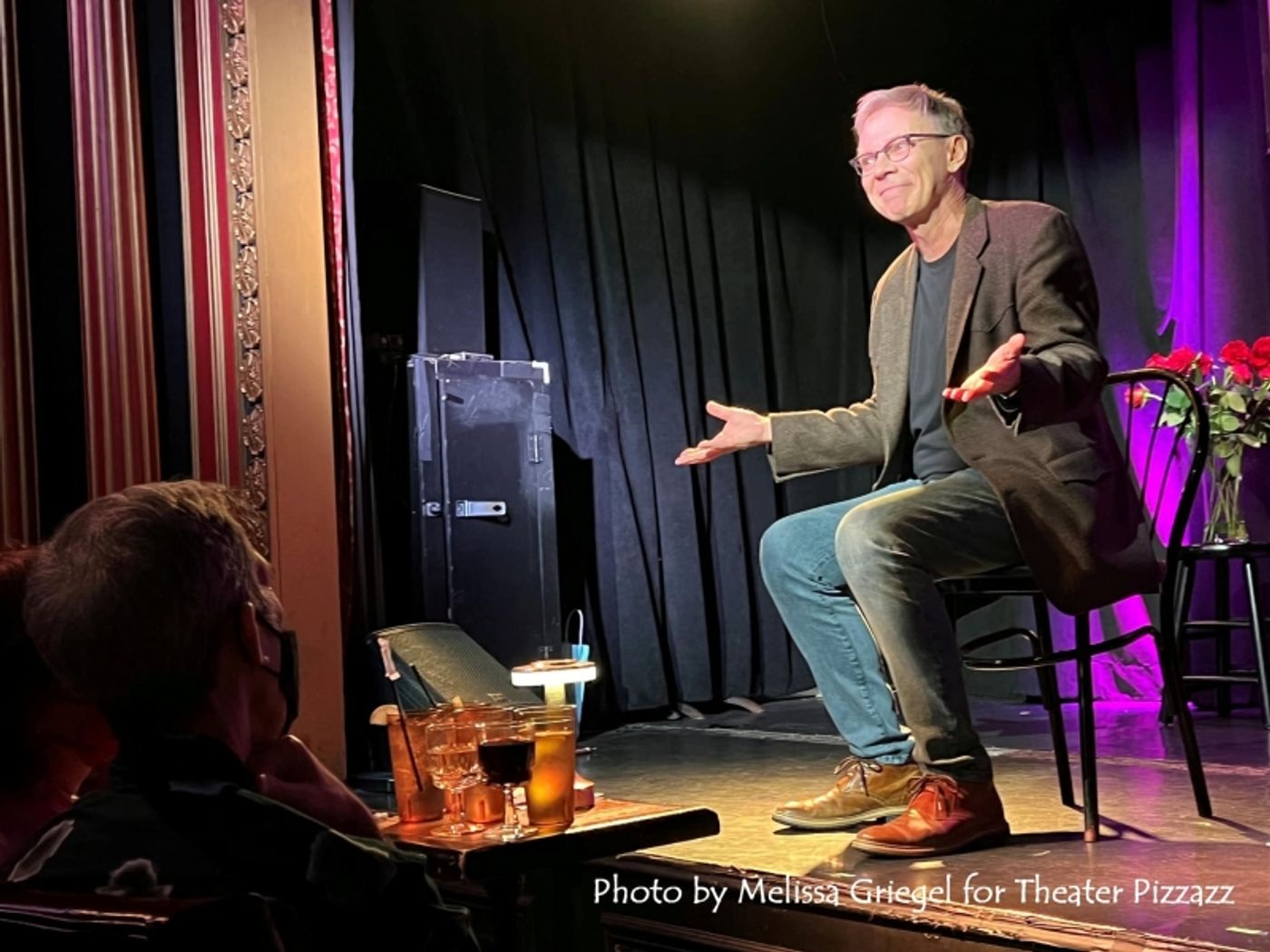
I always thought I had balls as an actor. I mean, I once did a 10-minute scene in a play where I was walking around complete naked - so the question of balls was right out there for everybody to see. Not to be corny, but this show has required a different kind of "nakedness" of me. For the first few months in LA, I had serious terror before every show. I'd sit in the dressing room, listening to the audience filing in, and think "Last week was a fluke! They're not gonna laugh tonight! They're gonna hate me. I'm such an idiot." But that never happened. They laughed. Now, I'm okay. I still get nervous, but I've learned that my job description is pretty simple: Just don't lie.
Do you have a cast of stories from the last decade that you rotate in and out of the show, or do you retire older stories altogether, in favor of newer ones?
When I was doing the show in LA, the slate of stories was pretty much set in stone. It was like a "set list" of my greatest hits, and I never deviated from it. I felt a little like I had cheated death by coming up with 75 minutes of stories that actually worked as a show. I was scared to rock the boat. When I decided (after a long break from performing it) to bring the show to New York, I felt a strong need to shake things up, so I started writing new stories. They just flew out of me. So, yes, I now rotate the stories occasionally. I'm lucky to have a brilliant director, Guy Stroman, who has an excellent eye, and has really helped me find and maintain the rhythm of the show. If I'm ever in doubt, I can always trust his opinion. I think I might have enough material now that I could do one of those two-evening shows like "The Inheritance" or "Angels in America!" I've seriously thought about it, but that would probably kill me.
This is a program that you play in different cities. Do you have to tailor the tales toward the people and the place that you are playing?
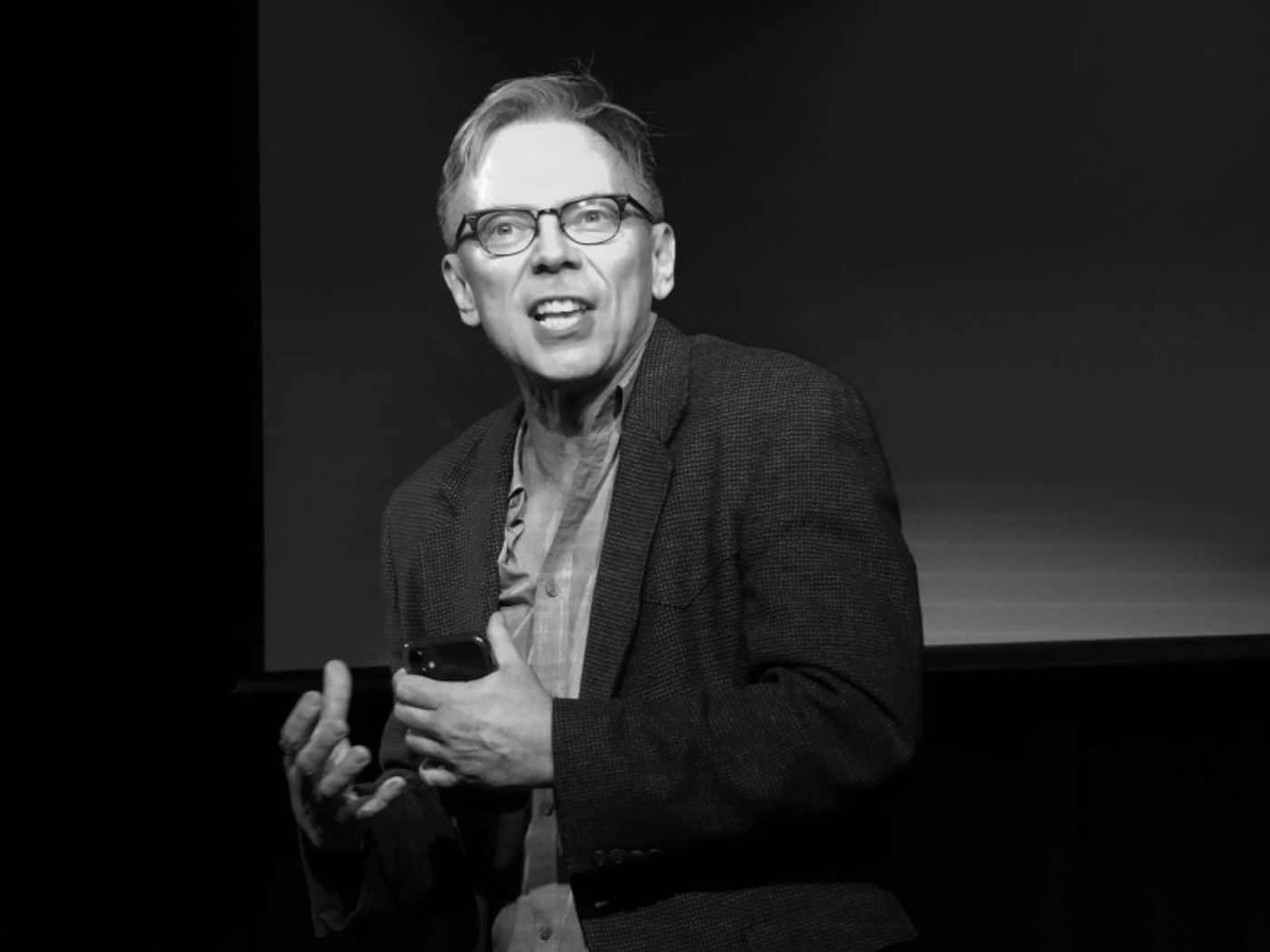
There are a couple of tiny shifts. I had a joke in the LA version where the punchline was about the Emmys. That gets a huge laugh in LA, but not in New York. The first incarnation of the show had a very "Isn't-it- nutty-to-be-single" vibe to it. As I mentioned, it was six years between the LA show and it's first performance in New York. I realized I was a different person. I'd moved back to Manhattan. My father had died. I'd been married and divorced during that break, and as Joni Mitchell once said, I'd "looked at love from both sides now." As I began to rewrite the show for New York, I had a much stronger feeling about how love is not just something we "feel," it's something that has to be expressed in our behavior. It requires us to show up and build bridges. Plus, it has responsibilities like learning to understand and accept the people we love for who they are, and to keep the door open for whoever else might be coming our way in the future. The stories for the New York show got darker, but somehow, they also got funnier. People were laughing louder, longer and in a deeper way. And that kind of laughter is healing. I'm about to find out how that new material will play in LA, but I suspect it will kill. LA has been through some shit in the last few years. I think they're ready.
When you debuted this show ten years ago, did the personal nature of the script give you any reservations?
Yes, I had many reservations. Both personal and professional. I knew I was going to expose parts of my romantic and sexual life that I hadn't really shared even with my closest friends. I was nervous that my inner circle would start to view me as needy, damaged, and desperate. But to my great surprise, I discovered that they already knew that about me! And miraculously, they loved me anyway. Professionally, my career has always depended on my reputation as someone who could transform myself into freaky or fucked up people, and for a while I was scared that casting directors would no longer view me not as a good actor, but as being some kind of twisted, man-crazy, old slut. Fortunately, that hasn't happened. Yet.
When telling one's own story in the manner that you do, in such a vulnerable and intimate way, with such a vulnerable and intimate topic as one's love life, can it be called acting? Or is storytelling an altogether different art form standing on its own?
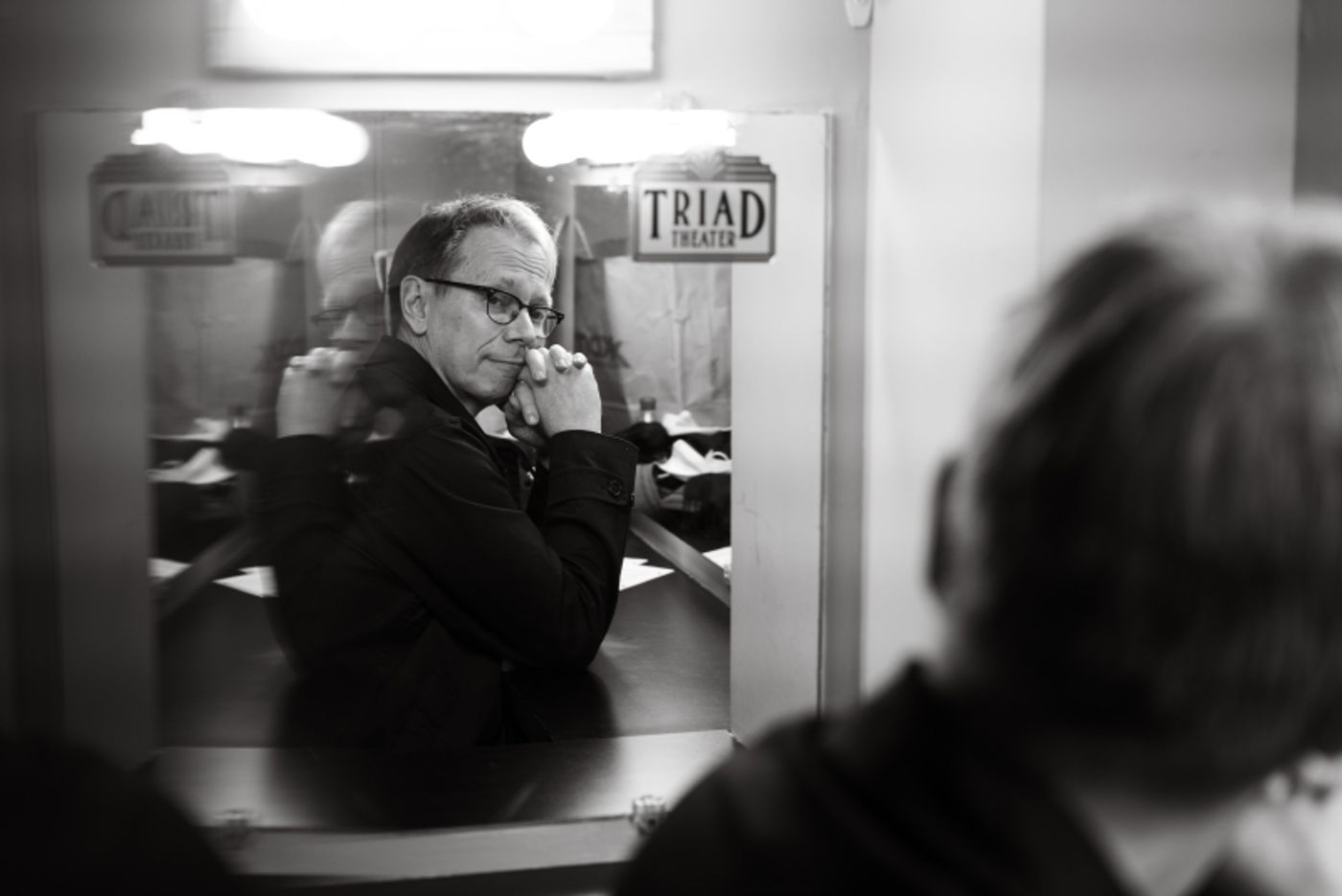
In my experience, storytelling and acting are very different beasts. Everything I know about acting has to do with disappearing into some character that was created by another writer. Storytelling (for me anyway) is the polar opposite. It's about me being me. And about trying to be as present, honest, and transparent as I can be. At first, I found it terrifying. Plus, there was the added pressure of standing out there alone with no one to help you. It's just you and the audience. And that audience is different every night. I admire anyone who tries to work solo. It's a lot to juggle.
In what ways does the crafting of a storytelling show and a film script differ, for an author?
In my humble opinion, no matter whatever kind of story you're crafting (true or fictional), you have to ask yourself three questions: What happened? How did you respond to it? And what was learned from the experience? Those questions create the "map" of the story. Storytelling is a short, powerful artform. The story's going to be coming out of your mouth so it better be truthful. People aren't stupid. If you start making shit up, they'll sense it. Screenwriting is a longer journey. It's a visual medium. Words are minimized. And for better or worse, you will have many collaborators (some of whom will be great and some of whom will be nightmares). Screenwriting pays well for a reason. One of the most fun things I've ever done was to write my first non-fiction book, WORKING ACTOR. It was published in 2019 and when I was writing it, I kept asking those same three questions.
Besides telling your own stories, what other work inspires and excites you?
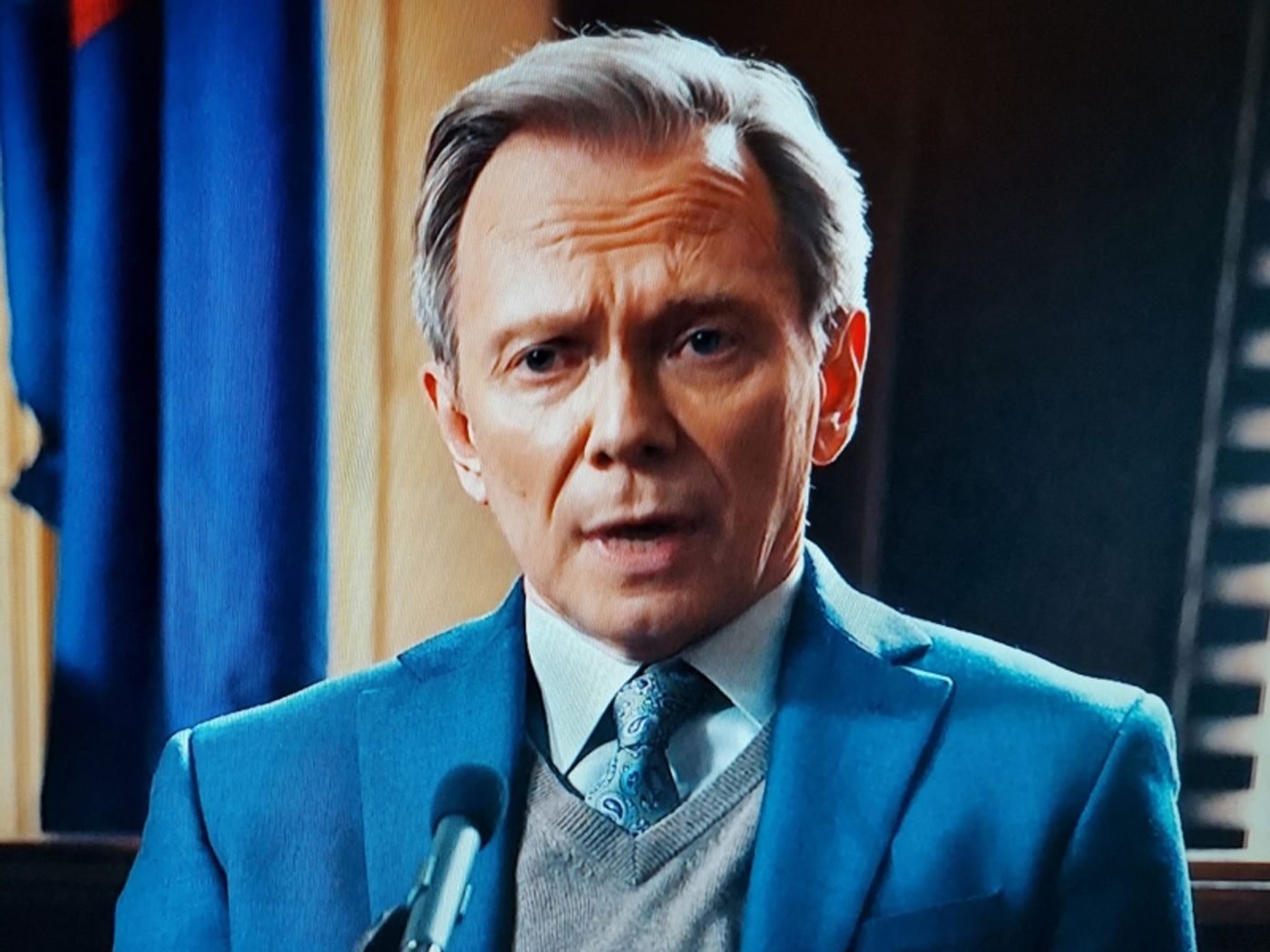
I still love acting, and I miss it when I'm away from it for too long. I'm always stunned by the power it can give you -- even if it's only for a few minutes. It's amazing to leave your life and stand in someone else's shoes. I also love photography and have been having the greatest adventure photographing New York again. I think it is the most photogenic city in the world. But I supposed the work that's calling my name the loudest right now is activism. During the 2020 election, I wrote about a zillion postcards to get the vote out in various states. But I also searched social media looking for Republicans who had announced they were voting for Biden. I would write to them, thank them for making that choice, and acknowledge how difficult that must be for them. And I got the most amazing responses. I'm still in touch with a couple of them. That whole experience gave me at lease some hope for the future.
Put a picture in my head of the work you do as a teacher.
When I'm teaching acting at AADA or UCLA, on the first day of class, I draw a line down the middle of the classroom. I tell my students that that line represents the border between the real world and the imaginary world, and that every day, I will be asking them to step over that line, as fully and completely as they can.
Some of your press makes a point of mentioning Lincoln Meyer, one of David E. Kelly's most wonderful, artistic oddballs. How did you find the character of Lincoln, and how has the popularity of the character informed your life as an actor and as a person?
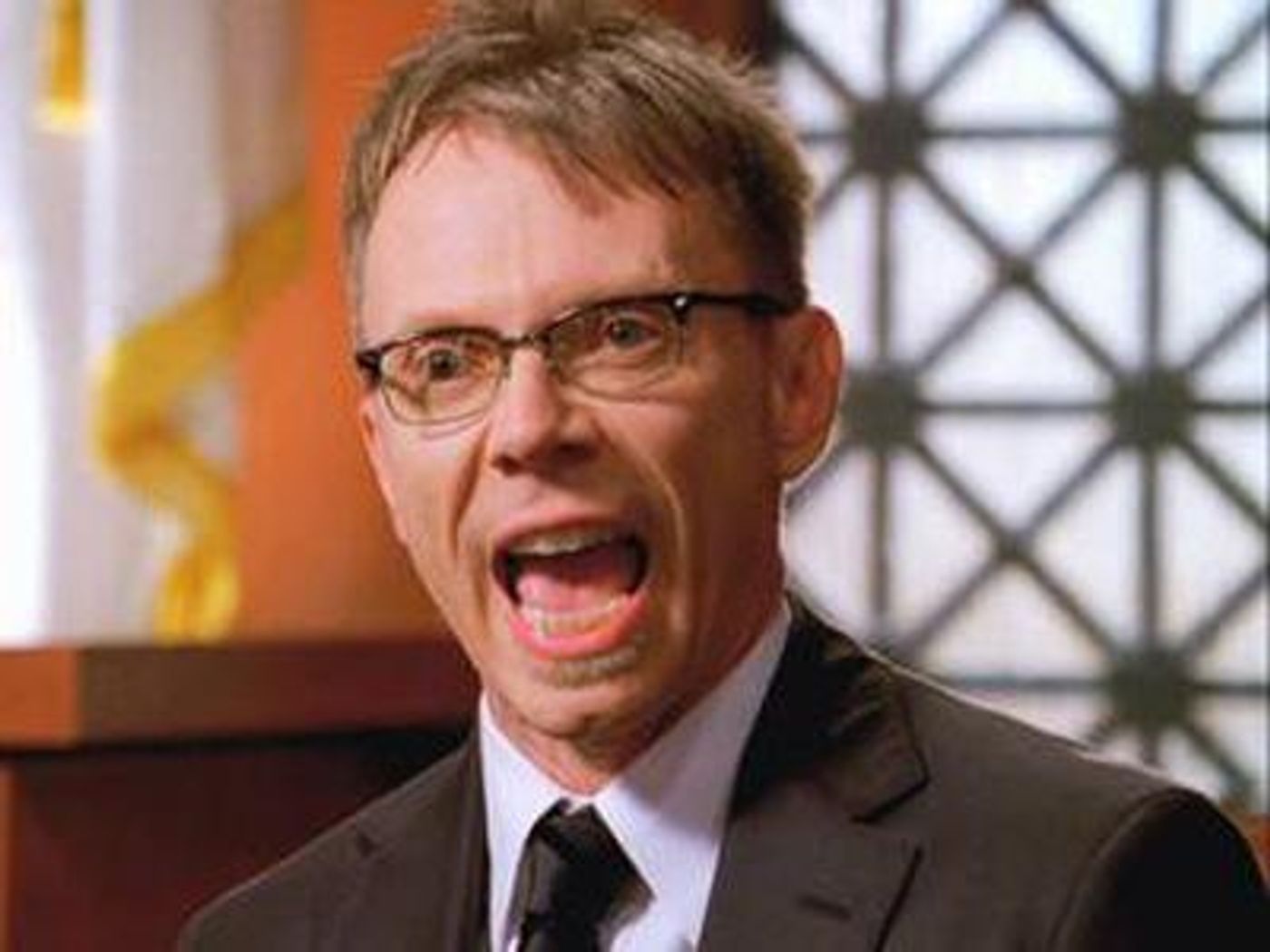 Everything about that job was a freaking miracle. I had been totally retired from acting for over seven years when my phone rang, and I was asked to come audition for this role on BOSTON LEGAL. The character, "Lincoln" was, at that time, only scheduled to appear in one small scene of one episode. I told the casting director I was a writer now and declined the audition. Amazingly, she wouldn't let me off the phone until I said yes. When I read the scene, "Lincoln" was described as a "Truman Capote type." That made me cringe because I didn't really know how to do a Truman Capote imitation. In desperation, I decided to try doing "Lincoln's" line in the voice of guy I used to work for when I was putting myself through acting school by doing catering work. I used to bartend his parties. He was a very strange, wealthy guy from East Haddam, Connecticut, and he had this Katharine Hepburn-ish sort of accent. He was a total alcoholic and as he got increasingly drunk, he would start talking with great confidence about subjects he knew nothing about. I decided to take a version of him into the audition and everyone present fell out laughing. They kept me in the room for maybe thirty minutes asking me to do it over and over again. It's the only time I've ever been hired on the spot. David E. Kelley loved "Lincoln" and what was supposed to be a one-day gig turned into a very long arc on season three of Boston Legal which was a very highly rated show at that time. I can honestly say that everything I've done since has its roots in Boston Legal. To this day, I still get stopped in the street by fans of that show. It handed my acting career back to me on a silver platter.
Everything about that job was a freaking miracle. I had been totally retired from acting for over seven years when my phone rang, and I was asked to come audition for this role on BOSTON LEGAL. The character, "Lincoln" was, at that time, only scheduled to appear in one small scene of one episode. I told the casting director I was a writer now and declined the audition. Amazingly, she wouldn't let me off the phone until I said yes. When I read the scene, "Lincoln" was described as a "Truman Capote type." That made me cringe because I didn't really know how to do a Truman Capote imitation. In desperation, I decided to try doing "Lincoln's" line in the voice of guy I used to work for when I was putting myself through acting school by doing catering work. I used to bartend his parties. He was a very strange, wealthy guy from East Haddam, Connecticut, and he had this Katharine Hepburn-ish sort of accent. He was a total alcoholic and as he got increasingly drunk, he would start talking with great confidence about subjects he knew nothing about. I decided to take a version of him into the audition and everyone present fell out laughing. They kept me in the room for maybe thirty minutes asking me to do it over and over again. It's the only time I've ever been hired on the spot. David E. Kelley loved "Lincoln" and what was supposed to be a one-day gig turned into a very long arc on season three of Boston Legal which was a very highly rated show at that time. I can honestly say that everything I've done since has its roots in Boston Legal. To this day, I still get stopped in the street by fans of that show. It handed my acting career back to me on a silver platter.
David, do you think David Dean Bottrell Makes Love has the longevity of another ten years behind it?
Wow. Good question. I hope so. I like to think it's possible, provided I continue to shuffle the stories and make sure the show stays current with the times. I would love to keep it going until I'm deep into my 80s! My career goal is to become a cross between Spaulding Gray & Betty White with a little Cecily Tyson thrown in because I loved her work!
Thank you so much for visiting with Broadway World Cabaret, and congratulations on the success you are having with this New York run!
Thank you for this interview, Stephen. BroadwayWorld was the first outlet to step up and give the show a wonderful review, and I really appreciate that. Thank you for the support you offer to the whole NYC cabaret and theatre community. It matters.
David Dean Bottrell Makes Love: A One-Man Show plays The Triad Theater May 11 and 18, and June 1. For information and tickets visit the Triad website HERE.
David Dean Bottrell has a website HERE.
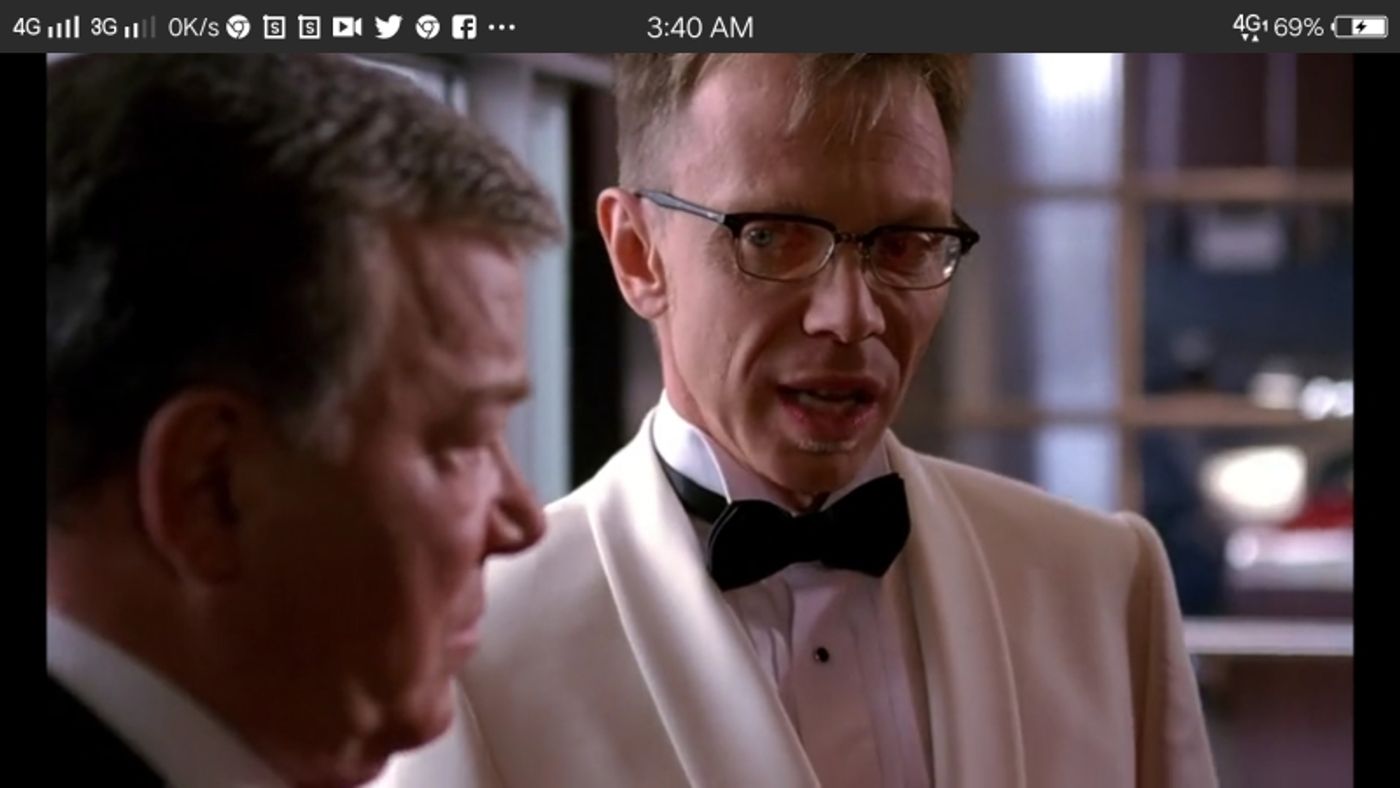
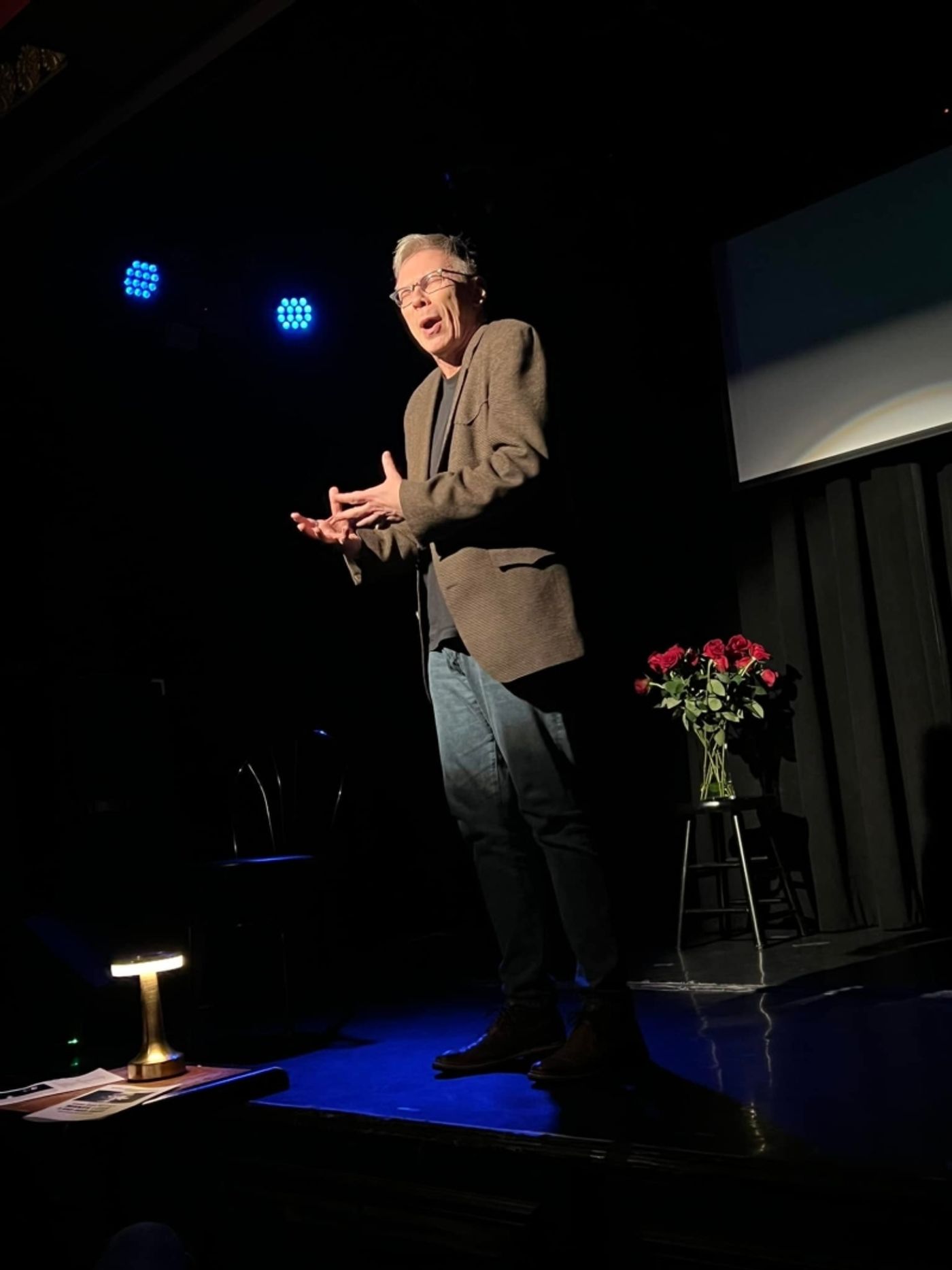
Videos

